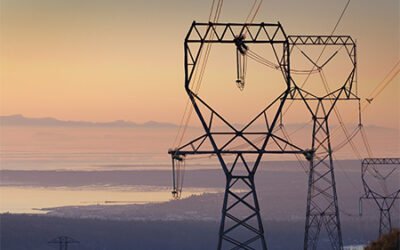Recently, I had the privilege to attend and present at the Greentech Festival, an excellent event in the realm of sustainability. This influential gathering left a profound impact, and I am delighted to share a comprehensive analysis of my experiences.
The Greentech Festival was a vibrant hub of activity, pulsating with the energy of engaged participants. With 14,000 visitors, 350 speakers across five stages, and 200 exhibitors, the event was a melting pot of diverse stakeholders, fostering an environment ripe for meaningful dialogue and collaboration.
A notable feature of the Greentech Festival was its exhaustive exploration of sustainability issues. The conference addressed a broad spectrum of sectors, including transportation, agriculture, energy efficiency, automation, and building infrastructure. Particularly commendable was the inclusion of discussions on sectors traditionally viewed as difficult to decarbonize due to technological and financial limitations, such as the aviation industry and building infrastructure. This inclusive approach underscored the necessity of a holistic strategy for achieving sustainability.
What distinguished the Greentech Festival was its emphasis on pragmatic solutions to existing challenges. The panels did not merely engage in high-level discourse; instead, they delved into specific bottlenecks related to financing, policy, and technology. This practical orientation provided attendees with actionable insights and strategies for overcoming current obstacles in the sustainability landscape.
The composition of the panels at the Greentech Festival was particularly noteworthy. They featured a balanced mix of experts from research, industry, and policy domains, ensuring a multidisciplinary perspective on each issue. This diversity facilitated richer discussions and more comprehensive analyses of sustainability challenges and opportunities. Coming from an energy background, the conference content illuminated how tunnel-visioned I had been regarding sustainability. It became evident that numerous sectors urgently require sustainable practices. Agriculture, in particular, stood out as an area significantly neglected over the years, where innovation and technology have been slow to permeate.
One of the strengths of this conference was its facilitation of critical debates on contentious topics such as carbon capture. These discussions are essential for advancing sustainability dialogues. The panelists and presenters did not shy away from presenting opposing viewpoints, thereby offering the audience a nuanced understanding of complex issues. For instance, debates scrutinized the viability and implications of carbon capture and storage, questioning whether it serves as a legitimate solution or merely prolongs the reliance on the oil and gas industry. Similarly, discussions on the pace of innovation in sustainable air travel and the dual impact of AI on sustainability were particularly enlightening.
Beyond the conference sessions, the event showcased a large number of exhibitors presenting innovative solutions. It was inspiring to see companies from various sectors demonstrating their commitment to sustainability through practical solutions. The Startup Land was an excellent initiative, highlighting brilliant concepts in sustainability. This area provided a platform for emerging startups to display their innovative ideas and technologies, further enriching the conference experience.

Key Takeaways
- The festival’s vibrant and engaged atmosphere was a catalyst for productive interactions and knowledge exchange.
- The comprehensive coverage of sustainability, including hard-to-decarbonize sectors, highlighted the need for an all-encompassing approach.
- The panels’ emphasis on real-world solutions to current bottlenecks in financing, policy, and technology provided valuable, actionable insights.
- The diverse mix of researchers, industry leaders, and policymakers enriched the discussions, offering well-rounded perspectives.
- The open debates on topics such as carbon capture and the role of AI contributed to a deeper understanding and critical evaluation of these issues.
Greentech Festival was an excellent event that provided a comprehensive and pragmatic examination of sustainability. The engaged atmosphere, extensive coverage, and focus on actionable solutions made it an invaluable experience. The diversity of perspectives and critical debates further enhanced the festival’s impact, fostering a deeper understanding of the complexities surrounding sustainability. I am eager to see how these discussions will influence future sustainability initiatives and drive meaningful progress.
Europe: +49-89-12250950
Americas: +1 408-604-0522
Japan: +81-80-7808-1378
GCC/Rest of APAC: +971-58-1602441
More About our: Services
Recent Insights
Episode 14: E-Mobility Conversations from the Green Auto Summit – Key Insights from MOBI.E
Overview: In this latest episode of PTR Perspective, we take a deep dive into the dynamic world of e-mobility with Alexandre Videira, Executive Board Member at MOBI.E, Portugal’s pioneering electric mobility network. Recorded at the Green Auto Summit in Stuttgart,...
Europe’s EV market: Overcoming slowdowns and seizing opportunities
Hassan Zaheer, COO at PTR Inc. discusses the key challenges and opportunities in the European EV value chain, driven by aggressive decarbonization goals and regulatory support. He highlights the top five EV markets—Germany, France, the UK, Norway, and the...
Switching Gears: The U.S. Move Toward Gas-Insulated MV Switchgear
The article authored by Muhammad Usman, Analyst at PTR Inc. provides a comprehensive analysis of the U.S. medium-voltage (MV) electric switchgear market, highlighting a shift from traditional air-insulated switchgear (AIS) to more advanced gas-insulated switchgear...
Recent Developments in The Indian Electricity Grid
The last few years have shown many developments for India’s electricity sector, including the introduction of new policies which have essentially transformed the sector altogether. On the generation side, renewable energy is now among the fastest growing and is...
CWIEME Transformer Day 2021 Impression
Despite the reduced demand for electricity, due to Covid-19, the demand for renewables grew . Transformer markets in the U.S., China and Europe are expected to reach 2019 levels. Driven by various regional and technological factors, such as an increase in electric...
Recovery possibilities of T&D sector in countries facing dual crises.
Covid-19 struck early in 2021 and affected the entire world. With little information about the disease and with no vaccine available, countries dealt with the pandemic in different ways and most tried variations on lockdowns. These lockdowns had the most effect on...
UK Transition from DNO to DSO model amidst changing grid landscape
In the United Kingdom, as in most places, the electricity distribution network was built to have electricity flow one way, from power stations to customers. As the UK moves to net zero emissions there will be an increase in distributed generation and this will require...







